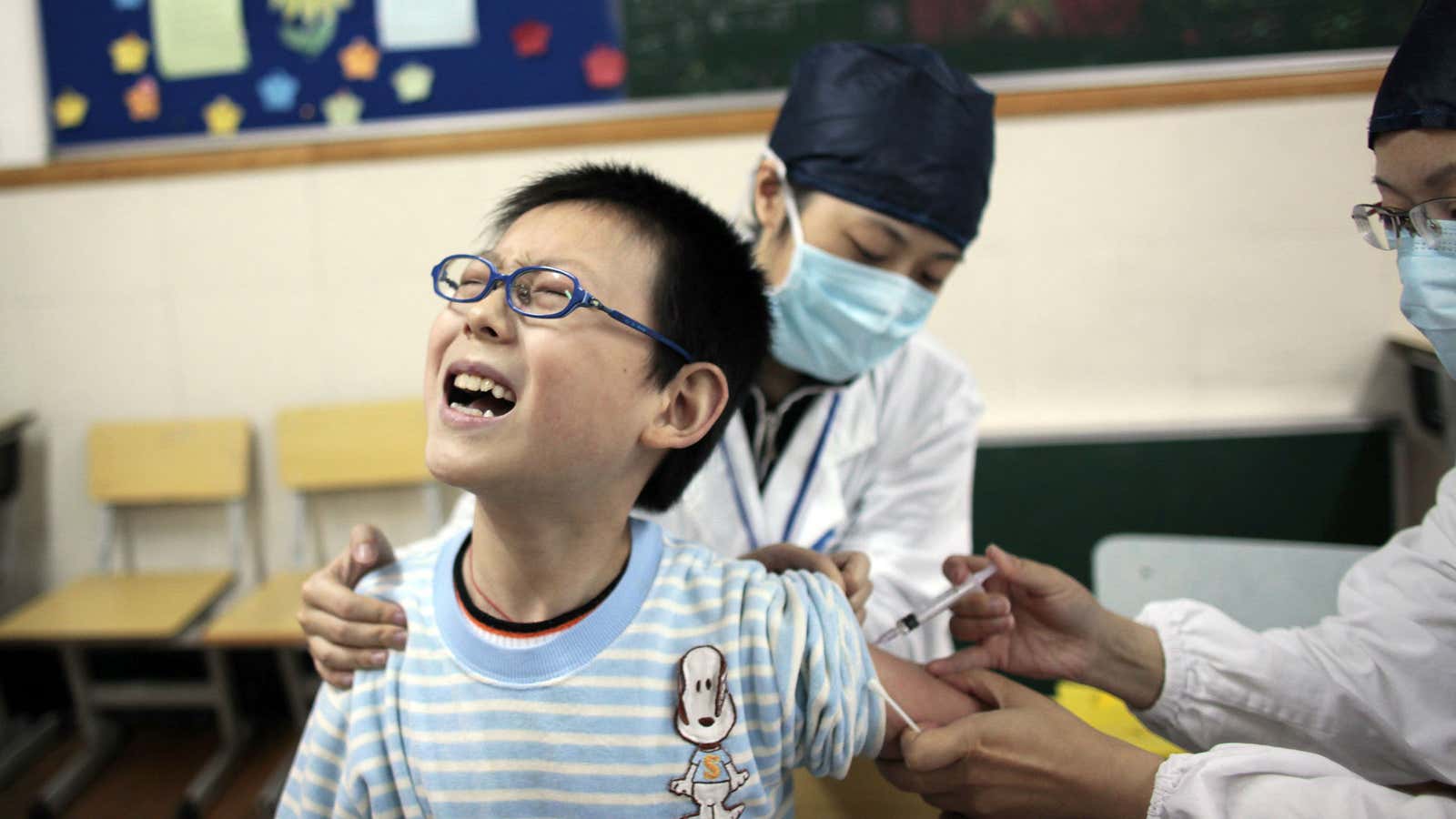China’s ambition to become a major player in vaccines has hit a snag: the deaths of 17 newborn infants who had just received Chinese-made hepatitis B vaccines. Authorities have halted production at three of the country’s largest vaccine manufacturers while autopsies are conducted, and have asked the World Health Organization (paywall) to help investigate. The hepatitis B vaccine was made by Shenzhen-based BioKangtai, and the infants were inoculated under a government-run health initiative.
The incident comes at an inconvenient time for Chinese drug makers who are trying to find a niche in an industry long dominated by a few international pharmaceutical giants. WHO granted its first “pre-qualification” status in October to a Chinese firm, for China National Biotec Group’s vaccine against Japanese encephalitis. It’s easy to see why the vaccine market is attractive: Vaccine sales have reached $25 billion a year. Other Chinese producers of vaccines for meningitis, polio, and pneumonia are likely to seek WHO approval over the next decade, according to Jack Zhang (pdf) of the US-based nonprofit PATH.
But the deaths, which may remind the world unfavorably of China’s many food safety scandals and disease outbreaks, could threaten China’s attempts. That’s unfortunate since Chinese drugmakers have the potential to dramatically increase access to vaccines in developing countries. With over 30 companies producing about 1 billion doses of vaccines against 27 diseases a year, China already has the largest vaccine-manufacturing capacity in the world. Chinese vaccines, as well as those from India and other emerging markets are helping drive competition and lower prices, Bill Gates wrote last month.
The deaths may also hinder China’s national immunization program, which administers vaccines for hepatitis B and other diseases for free and has been one of government’s few sources of pride when it comes to national healthcare. Chinese parents are already jumpy in the wake of the thousands of infants sickened by tainted milk formula in 2008. It may not be long until we see a Western-style anti-vaccination movement in China.
